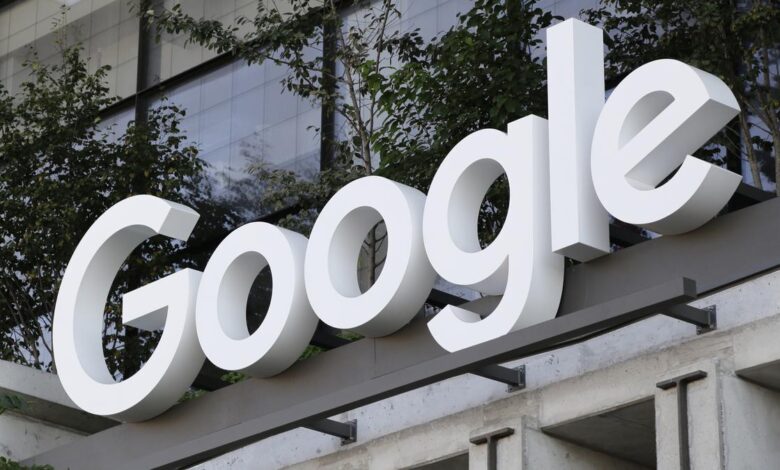Google faces Antitrust Lawsuit, accused of illegally crushing competition for search dominance
Lawsuit Claims Google's Staggering Search Dominance Comes From Exclusionary Deals With Apple, Android Manufacturers

The U.S. Justice Department and state attorneys general has filed a monumental antitrust lawsuit against tech giant Google, opening a landmark trial that could have far-reaching implications for the company. The trial revolves around allegations that Google has abused its dominance in online search to stifle competition and lock in its position.
What is an Antitrust Lawsuit and Its History
Antitrust regulations aim to promote open competition and protect consumers by restricting anti-competitive business practices. They originated from late 19th century laws passed to restrain monopolistic railroad and oil tycoons.
The Sherman Antitrust Act of 1890, the first major US antitrust law, prohibited anticompetitive agreements and monopolization. Other key statutes like the Clayton Act in 1914 and the Federal Trade Commission Act in 1914 expanded antitrust rules and enforcement powers.
Prominent antitrust cases include the dismantling of John D. Rockefeller’s Standard Oil empire in 1911 and the 1998 case against Microsoft for bundling its Internet Explorer browser with Windows to gain an unfair edge over rival Netscape Navigator.
Specific Allegations Against Google
The Justice Department and a coalition of states led by Colorado contend Google has violated antitrust laws by illegally monopolizing internet search through exclusionary distribution agreements and tying of products.
Google currently accounts for over 90% of internet searches in the US according to government estimates.Company processed 3.5 trillion searches globally in 2020, demonstrating a staggering level of market control. Critics argue this dominance stems largely from Google’s restrictive contracts with device makers.
Specifically, authorities allege Google pays around $12 billion per year to Apple alone, with billions more to other companies like LG, Motorola and Samsung, to establish its search engine as the preset default on smartphones, browsers and other devices. This allegedly shuts out rivals, cementing Google’s position.
Authorities also contend Google uses its power to mandate that its search engine be pre-installed alongside Google apps like Maps on Android phones. They say Google ties its search and digital ad technologies together in ways that undermine competition.
In addition, the coalition of states contends Google rigs its search results page to unfairly prioritize its own commercial offerings over those of rivals. This restricts traffic to competing sites, they argue.
Google’s Key Arguments in its Defense
Google asserts that its distribution agreements are lawful and it doesn’t wield unfair monopoly power because consumers can easily switch to alternative services if they wish. It states these deals provide revenue that funds ongoing innovation.
Further, Google argues its core search technology is simply superior to competitors based on accuracy, speed and usefulness.
Google argues that the agreements they have with various companies did not prevent rivals from developing their own search engines or stop companies from promoting them.
Similarities to the Microsoft Antitrust Case
This lawsuit contains distinct echoes of the 1990s antitrust case against Microsoft. That case focused on Microsoft allegedly preserving an unlawful monopoly by bundling its Internet Explorer browser with Windows to impede rival Netscape Navigator.
Similarly, Google now stands accused of seeking to solidify its search dominance through restrictive contracts and product integration. Both cases involve accusations that a tech titan is removing consumer choice and suppressing innovation.
Relevant Laws and Legal Precedents
The Sherman Act prohibits monopolistic actions like exclusionary deals and illegal tying of products. Court precedents have established that even firms with lawful monopolies can breach antitrust laws through unreasonable exclusion of competitors.
However, companies can justify such conduct by proving procompetitive effects like enhanced quality or lower prices for consumers outweigh any harms. This balancing test will be crucial in Google’s case.
Potential Implications if Google Loses
If Google loses, it may have to terminate deals that make it the default search option on popular gadgets and browsers like Safari. This could reshape the competitive landscape.
More significantly, Google might need to structurally separate parts of its business, like its search and digital advertising units. Such far-reaching remedies could profoundly transform Google’s operations.
The case seems likely to spur expanded antitrust scrutiny and potential breakup actions against other dominant technology firms like Amazon, Apple and Facebook.
Prior Antitrust Cases Involving Google
The FTC previously probed Google’s search dominance and acquisitions, but in 2013 Google agreed to modify some exclusionary distribution agreements without admitting wrongdoing or being found in violation of antitrust law.
The EU has issued over $9 billion in antitrust fines to Google related to its shopping comparison service and Android mobile operating system. But this trial represents the first major US antitrust lawsuit against Google’s core search business to reach trial.
Details of the Trial
The trial is taking place in the U.S. District Court for the District of Columbia before Judge Amit Mehta, who was appointed by Former US President Barack Obama.
High-profile witnesses expected to testify include Google CEO Sundar Pichai, senior executives from Apple, and representatives from companies that claim Google’s practices have harmed their businesses.
The Justice Department’s and states’ complaints contain detailed allegations. Proving illegal monopolization and consumer harm won’t be straightforward, but if Google loses, it faces momentous changes. The outcome of this historic trial could profoundly impact Google and establish the tone for oversight of dominant online platforms.
Please, also have a look into : Google Pay introduces Aadhaar-based authentication support for UPI: A step-by-step guide



